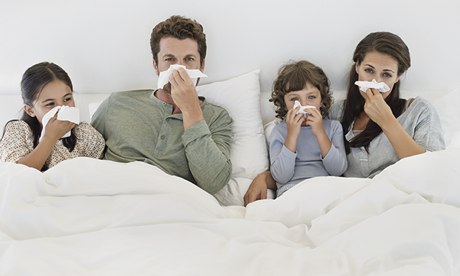
You wake up with a high fever, cough, sore throat and aching muscles. You curse that person on the bus two days ago who sneezed all over you. But before you blame them for your bout of flu, you should look closer to home. The latest flu survey published this week says that bus travel doesn't increase your risk of catching flu. You're more likely to catch it from your kids (or someone else's) - especially during the school term.
Flu is not only debilitating (it can take a week or two to recover from it) but can be dangerous for older people and those with weak immune systems. An editorial in this month's Heart said that flu can also trigger heart attacks and asked whether vaccines should be extended to those people aged between 50 and 64 with a high risk of heart disease.
So is there more you should do to avoid getting flu in the first place?
The solution
You could try to stay away from sick people, but that is practically impossible. People shed flu virus for 24 to 48 hours before they feel ill and five days afterwards. If your child has flu, it's difficult not to catch it as you can't declare an exclusion zone around a three-year-old. You can, however, keep them away from unvaccinated, vulnerable people. You can reduce the risk of catching flu by washing your hands thoroughly and often (in warm, soapy water, and drying them on disposable towels). Flu virus particles get in through your nose, eyes and mouth, so don't touch these entry points with your fingers. Easy, right? Eating and sleeping well and exercising may make you less likely to get flu, but no one has proved it. The same is true of wearing gloves or a face mask.
This week's candidate mooted for flu prevention is a traditional Japanese pickle, found to increase antibody production in mice. For the non-mouse community, the NHS is now offering a nasal-spray vaccination for children aged two and three, with plans to extend coverage. The argument for this is that young children can get complications such as pneumonia and ear infections as well as infect their families (including mothers who are pregnant or babies). So if you have young children, you could consider this, although there is some controversy about how robust the evidence is for flu vaccine.

